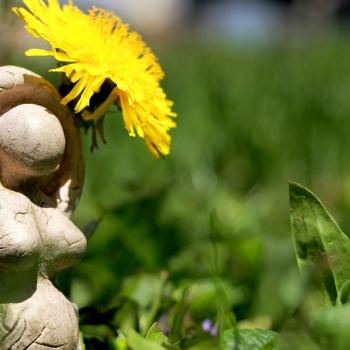First of all, The Nightmare Before Christmas is one of my FAVORITE movies of all time. I listen to the soundtrack every night in October (it’s my Halloween-time writing music). I watch it annually with my niece and nephew and usually another time or two around there as well. This is not a piece to talk about what is wrong with the movie (because there is NOTHING wrong with the movie!!!). It just so happened that on my 503rd viewing of it this year, I realized it’s a great explanation of cultural appropriation: what it is, how it happens, and how cultures can be shared respectfully without being appropriated.
Cultural appropriation is an uncomfortable topic. Fortunately, our favorite movie explains it, beautifully.
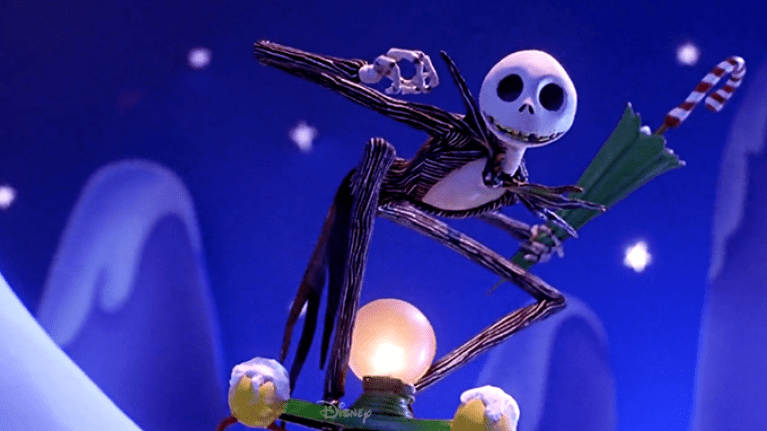
What IS cultural appropriation? The label is relatively new in general conversation, and its definition can be subjective. What is openly shared in one culture is not open for sharing in another. In general, cultural appropriation is the misuse, and/or profiting off the culture of another, particularly of a colonizing culture taking practices from an indigenous culture. One commonly cited example is that of someone not belonging to any Native American nations wearing a war bonnet as a fashion accessory or Halloween costume.
Critics of the concept (aka, beacons of white fragility…) say, “So, we can’t be inspired by other cultures? Are you saying I can’t go to the Japanese gardens because I’m not Japanese?”
No. No one said that.
Cultural sharing is a beautiful thing. Cultural appropriation is not. But the general discourse struggles with what it means, with individuals often falling somewhere on the spectrum between being nervous to even learn about a new culture out of fear of being appropriative to rejecting the whole notion of appropriation and disrespectfully tromping over another culture’s practices.
Let’s look at The Nightmare Before Christmas….
Jack is tired. He’s taken for granted his own holiday practices, no longer finding inspiration in what is familiar. He goes out on a quest to find something meaningful and new.
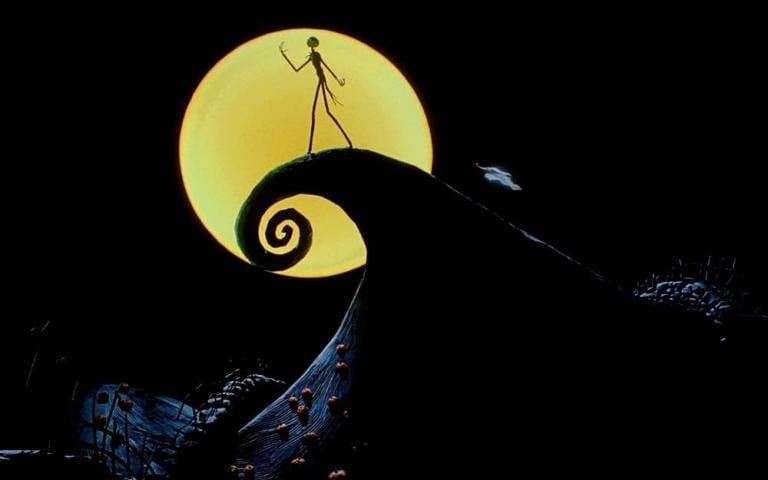
In the United States and other colonizing nations, generations of individuals abandoned their own ancestral cultures in order to either “become white” or better assimilate for either their own protection or because they were made to believe their own practices were something to be ashamed of. Generations later, their descendants may be soaking in privilege, but lacking in cultural and spiritual richness. Perhaps like Jack, they go out looking for something meaningful and are attracted to culturally rich practices of indigenous groups.
The search is not the problem. The problem is in the taking without permission or proper context.
Jack discovers something new and exciting and because of his privilege, believes it is his for the taking simply because he learned about it and liked it.
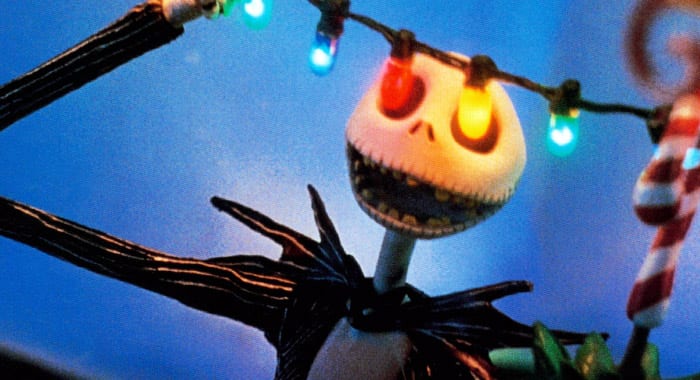
He is amazed by the sights and sounds of Christmastown. Perhaps because he is the pumpkin king, he feel entitled to grabbing a bunch of Christmas relics and running back to Halloweentown without asking.
It’s possible Santa would have gladly given him some things to take with him. It’s possible that Santa would have said no. Jack should have asked first, and then respected Santa’s answer. This is akin to non-native folx crossing onto lands belonging to Native nations and harvesting herbs such as white sage without permission or compensation. Some nations might be all right with people harvesting or purchasing, others not. The point is the ask and respecting the answer.
Jack presents himself as an authority on Christmas…without actually understanding the context of what he’s talking about.
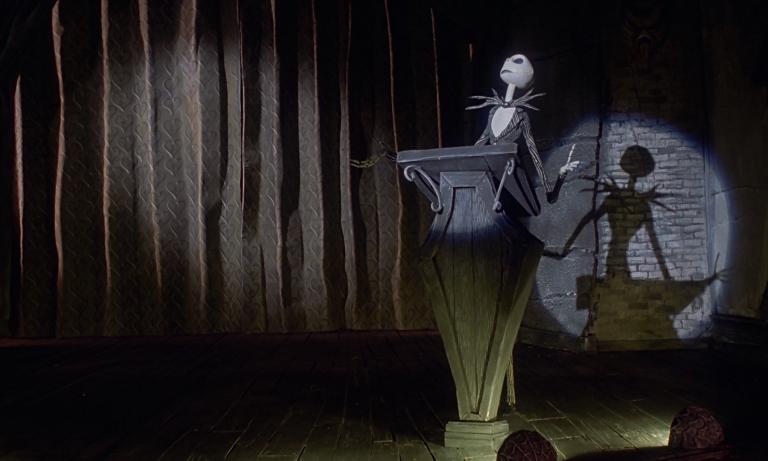
Instead of offering Santa Claus the opportunity to talk about Christmas, Jack takes up all of the space and lets the people of Halloweentown think he’s an expert. The people of Halloweentown wildly misinterpret the meaning of Christmas and immediately replace the holiday’s jolly spirit with their own spooky elements, perhaps even crediting Jack with the origins of Christmas.
Modern fashion routinely launches lines called “Native-inspired,” but without doing the homework to know if the symbols are appropriate for non-Native persons to wear, or even if they’re appropriate to be sold at all. Rather than hiring a Native designer who could offer designs in an appropriate way, they misuse the symbols and keep the profits to themselves. The public may purchase the pieces, and without doing the homework themselves, mistakenly believe the designs belong to the general public.
“Why should they have all the fun? It should belong to anyone!”
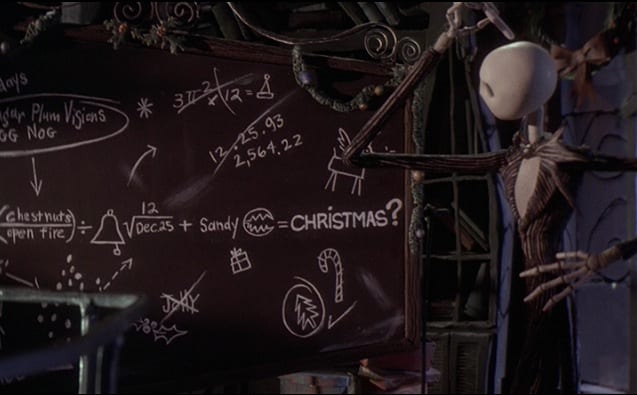
Jack is frustrated because he doesn’t understand Christmas. Instead of talking to anyone in Christmastown about it, he decides to make it his own. He even concludes, “I’ll bet I could improve it, too, and that’s exactly what I’ll do!” announcing a full colonial-takeover of Christmas when he shouts out the window “Christmas will be ours!!!” Shortly thereafter, the citizens of Halloweentown sing about how Christmas is theirs.
In my last book, I interviewed a number of native Irish persons about the Morrigan. Many said the same things: that they welcomed the curiosity of foreigners, but are understandably bothered when the foreigner claims to know better than they about their own culture. Author Lora O’Brien frequently talks about the importance of giving back to the culture from which you are taking, especially if you are profiting from it. Because I personally do make money from books I write about Irish and other Celtic cultures, I routinely donate portions of my royalties to organizations such as Resurrecting Monuments. If money is a challenge, sharing links to articles or books by native writers is helpful, too. Just as you would bring a bottle of wine or dessert to the home of someone who is making you dinner, make sure you are giving to the culture from which you are being fed.
Jack ignores Sally when she voices concerns.
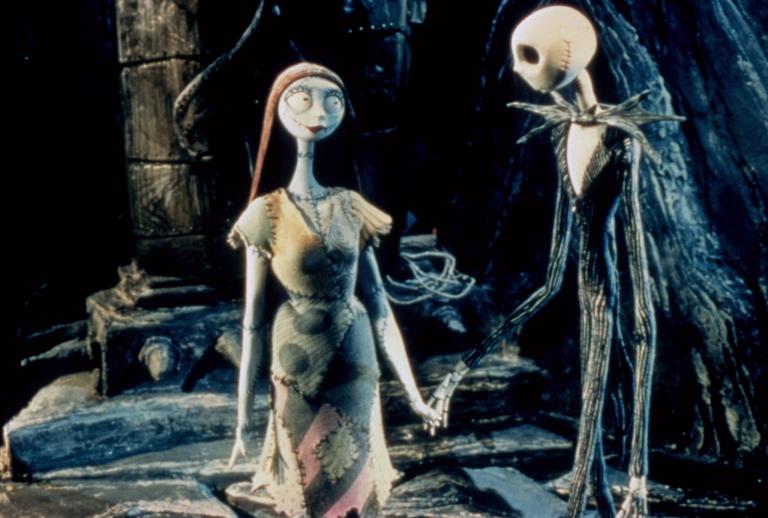
Sally repeatedly tells Jack that something about his plan is wrong, but he repeatedly ignores her. Jack really believes in his vision and won’t hear anything from anyone else. This is where he’s made another fatal mistake.
Even with best intentions, mistakes will be made. I make them all the time! But when someone, particularly someone from the culture I’m writing about, tells me I’m wrong or appropriating, I listen without being defensive, apologize if necessary, fix my error, and thank the person who educated me.
Jack didn’t do that. He went forward with his plan and SPOILER ALERT: Everything goes all wrong.
Jack removes all traces of the original people who created the holiday he believes he is honoring, but actually appropriating.
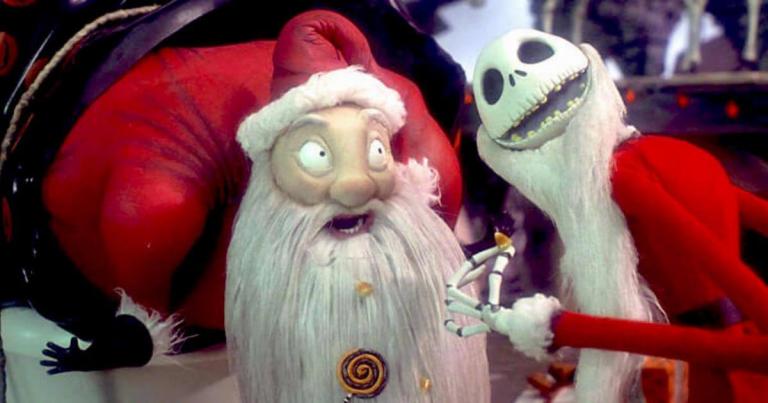
On Christmas Eve, Jack commits the ultimate act of appropriation, stealing Santa’s role and replaces Santa’s gifts to the children with the gifts made by the people of Halloweentown. He tells himself he’s doing the “right thing” by giving Santa a vacation (ignoring Santa’s insistence that he doesn’t want a vacation–he wants to do his job), and paying no attention to the suffering Santa endures at the hands of his own naughty assistants.
Major companies profit from the inspiration and labor of BIPOC groups, whether copying artwork or outright stealing products. These folx are often excluded from these and may find that their resources are depleted, practices eroded, or businesses ruined because a bigger company with deeper pocket and more power takes up all of the space and resources.
Jack gets it wrong. Very wrong.

He thought his Christmas would be better than the actual Christmas. Instead, he horrified families around the world. By taking Christmas for himself, he crushed its spirit and erased the things about it that first attracted him–and others–to it.
In the movie, everyone gets hurt by Jack’s actions. In the real world, it’s usually the people in the culture of origin who will be hurt by the appropriation. Those who appropriated will do just fine.
How Jack gets it right…

Jack realized he was wrong, stopped the madness he started, offered a sincere apology to Santa and worked to repair the damage he had done. Fortunately, because Santa is Santa and because this is a movie, Christmas was saved.
However, in the real world, it’s better to stop the appropriation before it begins as it’s not nearly so simple to fix.
What Jack COULD have done:
- Started a working relationship with Santa, learning what is appropriate to replicate in Christmas traditions, and what isn’t. (“Giving gifts, yes. Giving scary gifts, no.”)
- When giving his talk on Christmas, acknowledged his roots and place as an outsider. Better yet, he could have given the platform to Santa to talk about Christmas, himself.
- Listened to the voices of concern, such as Sally’s, without being defensive.
- Taken no for an answer. Santa didn’t want to give up his spot on his sleigh. Maybe he didn’t want Halloweentown folx involved in his holiday at all. Either way, Jack should have respected Santa’s wishes.
Halloween and Christmas experience cultural sharing.
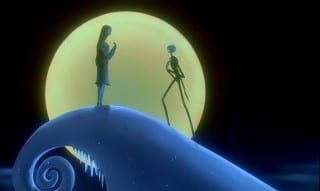
When Jack entered into relationship with Santa, being open to learning about Christmas but not stealing from it, Santa made it snow beautifully all over Halloweentown–a special Christmas gift. The people of Halloweentown loved it. It was something new and “really very strange,”shared with the permission of the source. Even better, Jack appreciates his own holiday even more, approaching it with new eyes. That may be the true gift of cultural sharing–gaining new insight to the things within us that we take for granted.
The message of Nightmare Before Christmas wasn’t, “Take what you want and damn the rest.” Nor was it, “Stay in your lane and never learn from anyone different than you, ever.”
The message was about leaning into curiosity, but doing so with respect and open exchange. It wasn’t wrong that Jack tried to embrace Christmas. The wrong was in HOW he did it, and how the wrong could have easily been avoided.
Have a Happy Halloween Season!







